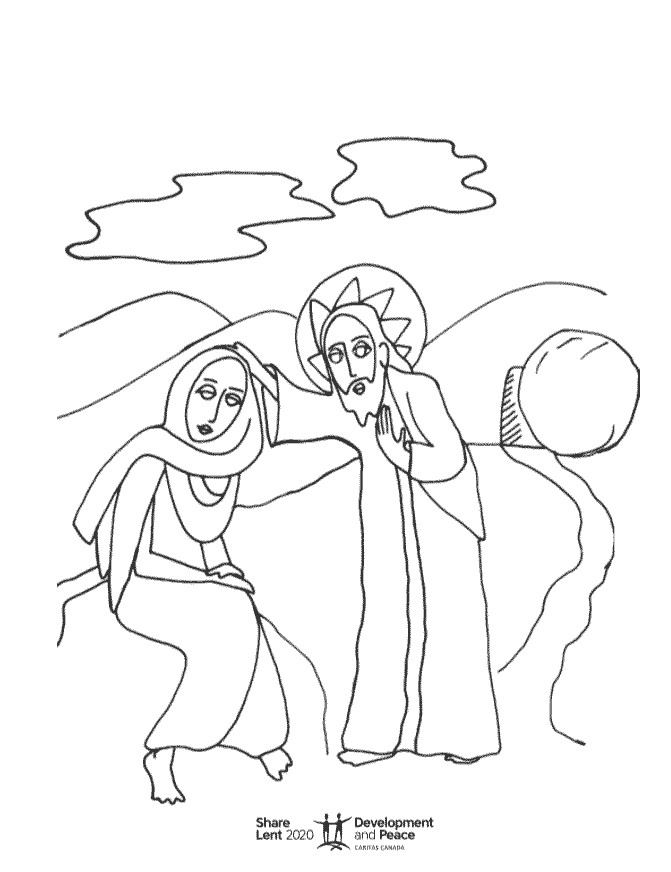Solidarity Sunday
Gospel: John 11:1-45
The quiet tears and divine power of Jesus
Today’s readings are full of God’s mercy and compassion for humanity. By this compassion and mercy, the Spirit of God breathes life into that which otherwise dies. The Gospel in particular, is a beautiful expression of the intimacy of Jesus with our human condition and its redemption. Lazarus and his sisters, Martha and Mary, are loved by Jesus. He decides to go to them even though his life may be put at risk. His disciples ask if he really wants to go back to Judea, where people had just tried to stone him. He does.
Do we have the courage to follow Jesus to be close to those whom he loves when it means putting ourselves in danger with Him? Like Thomas, can we say, “Let us also go to die with him”? What are we willing to sacrifice in our own lives to follow Jesus to help those at risk of violence and death? These are questions we must challenge ourselves with to truly be his disciples.
“Jesus wept,” is popularly known as the shortest passage in scripture. In just two words, the humanity of the Christ is captured. Jesus knew he was to raise Lazarus from the dead. We may wonder why he still cried at the death of Lazarus. The Greek verb in the sentence, δακρύω (dakruó), is best described as the shedding of quiet tears. It is not a loud sobbing or lamentation. They are the tears you only notice on a second look. One can imagine the Lord taking in the suffering of Mary and Martha at the loss of their brother. Not only their sadness but that of everyone around him would have been palpable. In the fullness of his humanity, Jesus feels the loss of his friend Lazarus. He feels the grief, but, I believe, the source of his tears is much larger.
I like to imagine that at this moment Jesus experienced, in the deepest of ways, our human condition. He felt and saw the tyranny of death in the world when he lost someone he loved. He saw and felt what death can do to his creation—that by virtue of being created by and for love, human beings must necessarily suffer loss and pain. The quiet tears come to him.
And then, from those quiet tears, the divine power comes forward. Filled with the confidence that his Father will hear him, Jesus exhibits a most unhuman-like ability. With the words, “Lazarus come out!” he raises the one he loves from the dead in the presence of a great crowd.
Like Jesus, our own quiet tears for the suffering of the world should not leave us powerless to act. They should fill us with a holy longing to call on the power of God. When we are moved by the victims of poverty, violence, hunger and disaster, we too can draw on that power to act. We may not be able raise the dead like Jesus, but we can still, as the poem of Wendell Berry says, “practice resurrection.” We can give of ourselves in the service of others and the vision that death is never the final word.
On this Solidarity Sunday, Development and Peace — Caritas Canada invites you to join us in shedding quiet tears for the poor and oppressed, filling ourselves with divine power and saying to our Creator, “I thank you for hearing me.”
We are offering six weekly reflections that connect the proposed Gospel readings for the Sunday liturgy with our campaign theme. They will be published every Monday on our website or are accessible in the Resources section. This Lent, give from the heart For our Common Home!


Get your pencils ready!
For families with young children, we invite you to discover the weekly Gospel reflections of the 2020 Family Bulletin. Each reflection is accompanied by an illustration. Click on the image to download the illustration and reflection for this Sunday.

